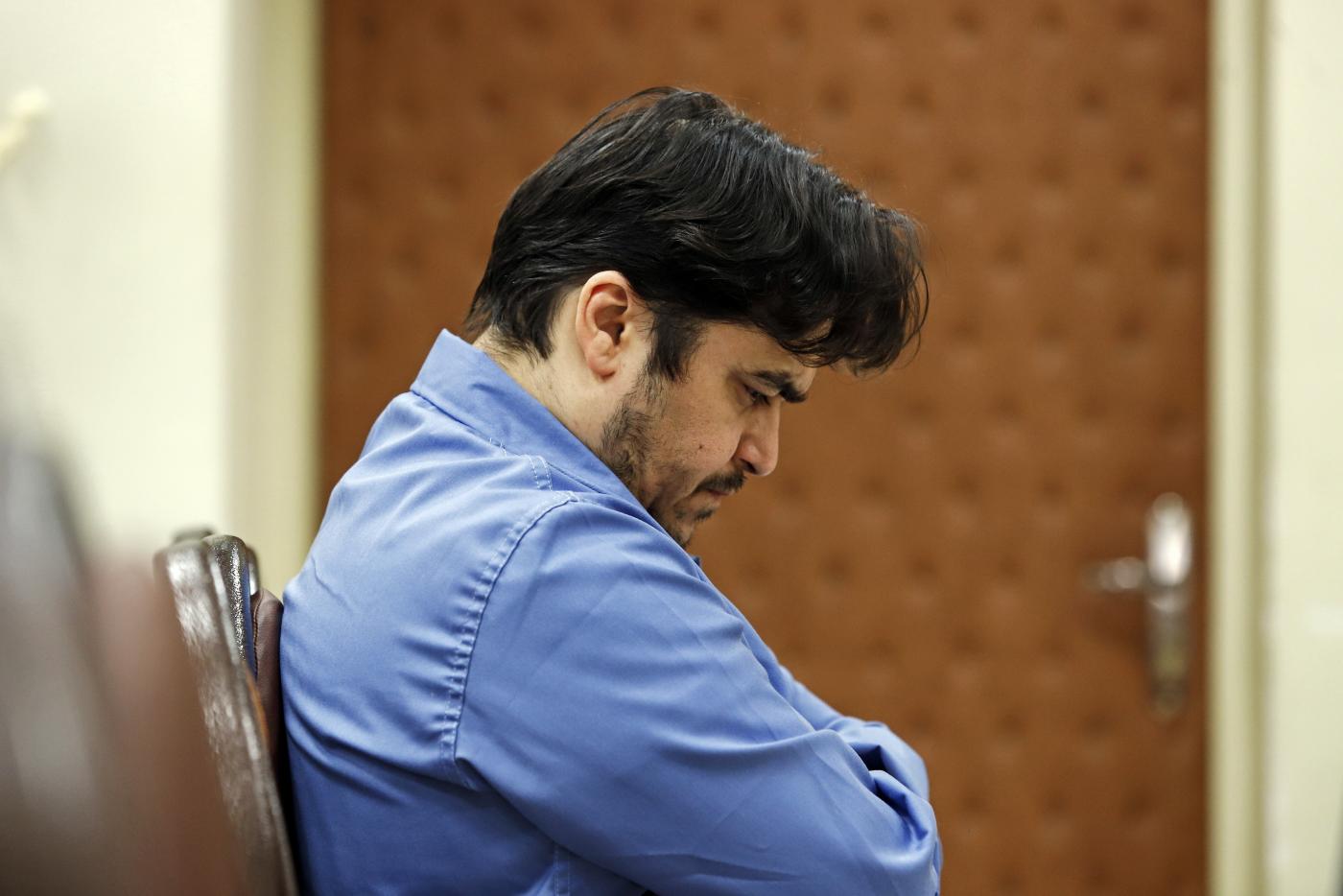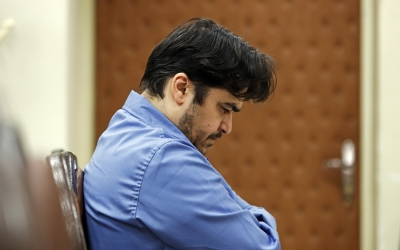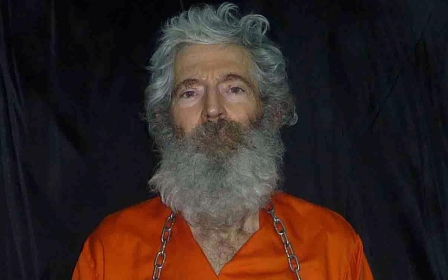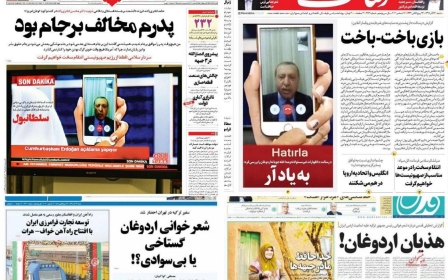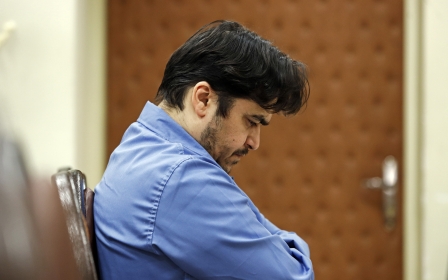Iranian press review: Supreme leader gives green light for new talks with US
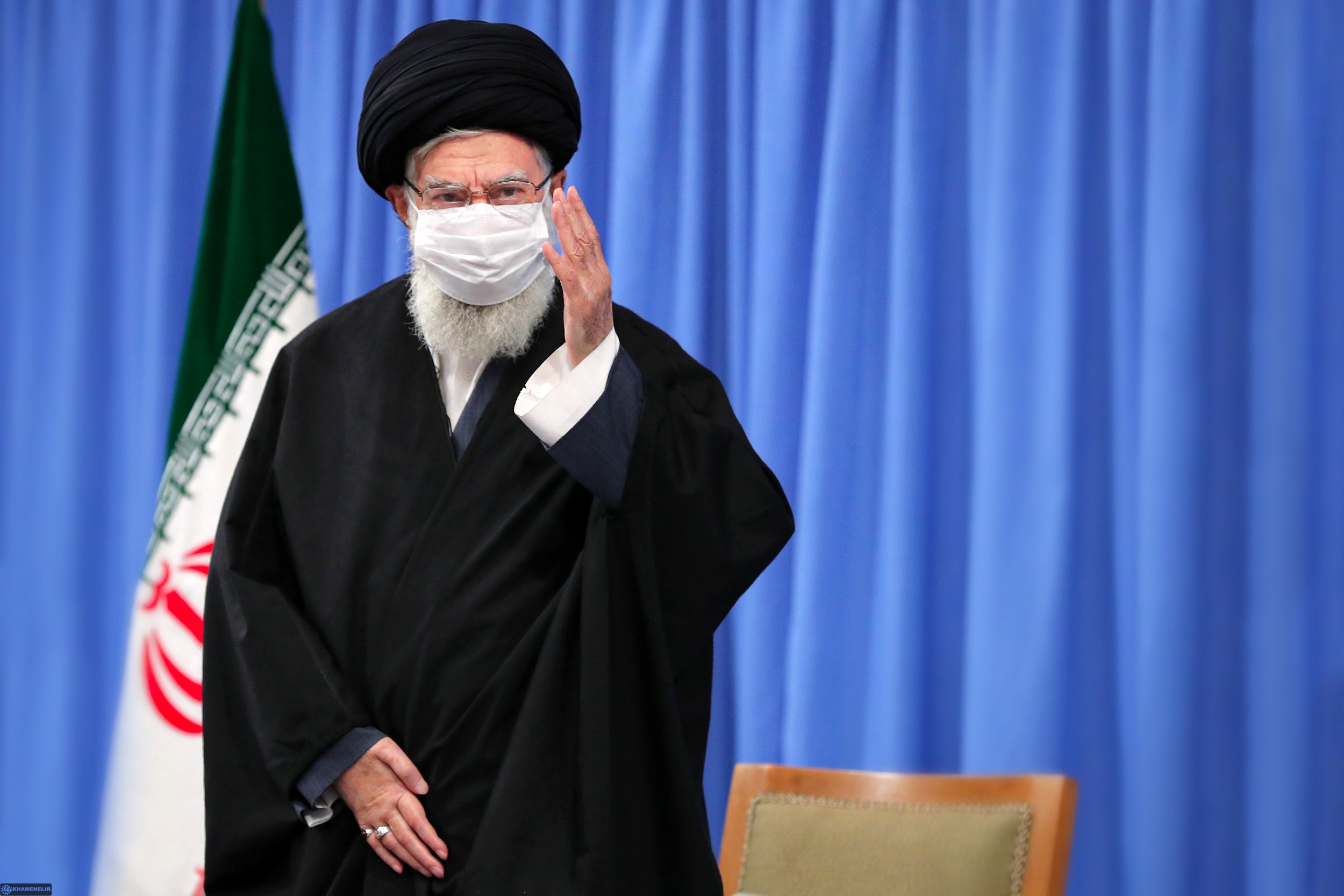
Khamenei backs talks to remove US sanctions
In a rare intervention, Iran’s Supreme Leader Ali Khamenei has backed efforts by President Hassan Rouhani’s administration to lift the sanctions that have been imposed on Iran since the US withdrew from the 2015 international nuclear deal two-and-a-half years ago.
In a meeting with the family members of slain Iranian commander Qassem Soleimani on Wednesday, Khamenei advised the officials not to waste time.
“If the sanctions can be lifted, we should not hesitate for even an hour,” Khamenei’s official website quoted him as saying.
'If the sanctions can be lifted in a correct, wise, Iranian-Islamic and dignified manner, this should be done'
- Ali Khamenei
“If the sanctions can be lifted in a correct, wise, Iranian-Islamic and dignified manner, this should be done. But our main focus should be on neutralising the sanctions,” he added.
New MEE newsletter: Jerusalem Dispatch
Sign up to get the latest insights and analysis on Israel-Palestine, alongside Turkey Unpacked and other MEE newsletters
Despite his role in ordering the talks that led to the nuclear deal in 2015, Khamenei had always suggested that negotiations with the US would be fruitless because of its unreliable politicians.
However, since Joe Biden’s victory in the US presidential elections, rival political factions in Iran have struggled over who might lead potential negotiations with Washington.
Khamenei’s latest remarks about lifting the US sanctions revealed that he had already permitted the moderate government of Rouhani to hold talks with the upcoming US administration.
On Monday, Rouhani also said that his administration would not allow opponents of the 2015 nuclear deal to scupper such efforts.
“Some groups [inside Iran] are attempting to delay the lift of sanctions, but we won’t accept one hour, or even one minute, of delay in that process,” Iran’s official news agency IRNA quoted Rouhani as saying.
Ruhollah Zam didn't know his death sentence upheld
One week after the execution of Iranian dissident journalist Ruhollah Zam, his father has revealed that the Iranian judiciary did not notify Zam until the last night of his life that the country's supreme court had upheld his death sentence.
Zam, who had been living in France since 2010, was arrested in Iraq in October 2019 by Iraqi intelligence and handed over to Iran’s Islamic Revolutionary Guard Corps (IRGC) in Baghdad.
On Saturday, Zam’s father, Mohammad Ali Zam - who was once an influential cleric among the inner circle of power holders in Iran - disclosed the details of the last visit that he and his family had with Ruhollah a day before his execution in Tehran’s infamous Evin prison.
“The head interrogator of his ase had several times stressed to all family members not to say anything about the supreme court verdict that upheld his death sentence,” Mohammad Ali Zam wrote on Instagram.
According to Zam’s report of this visit, Ruhollah and his family members performed a congregational prayer as the interrogators and prison officers looked on.
Some family members were crying during the prayer, which made Ruhollah suspicious about the reason for the visit. According to Zam’s father, this made the head interrogator worried that Ruhollah might become aware of the supreme court’s decision.
“The head interrogator said to Ruhollah: ‘Don’t worry, these tears of your family are tears of joy of seeing you. Even if the supreme court has upheld the verdict, carrying it out would not be so easy, and we have to go through a process that we would inform you about’,” Zam’s father added on Instagram.
During the visit, Ruhollah also asked his father if a new video of his forced confessions was broadcast on IRIB, Iran’s official TV channels.
“I told him: ‘Yes, last night a video was broadcast, in which you accepted the charges of espionage, receiving dollars from foreign countries and leaking information about the location of martyr [Qassem] Soleimani.
"In the video, you were in front of a whiteboard, writing the names of some people on it,’” Zam’s father wrote.
The Etemaad daily wrote that this video was recorded at the time the IRGC handed Zam to the intelligence branch of Iran’s judiciary, when he was told that Iran’s Chief Justice Ebrahim Raisi was considering him for a prisoner swap.
Zam told his father that while he was inside the judicial intelligence custody, he was told to write those names on the whiteboard for a video that they were producing to inform Raisi about his case.
Covid-19 vaccine tours scam
Travel advertisements for tours to Turkey and the United Arab Emirates (UAE) to receive Covid-19 vaccinations have appeared on Farsi social media, local media reported.
A travel agency in Tehran advertised "Covid-19 vaccine tours" starting in the first week of January, claiming that it could book special appointments for Iranians to receive the vaccine in the two neighbouring countries.
The tours were advertised at 120m Iranian rials (around $600 on the open market). Meanwhile, Iran’s health ministry has warned that the travel packages, offering a five-day trip to Istanbul and Dubai to receive vaccination in private clinics, are scams.
Public vaccination has not yet started in Turkey and the UAE.
In recent weeks, Iranian officials announced that their attempts to buy 20m doses of vaccines were unsuccessful because of US sanctions on Iran’s banking system.
While importing medicines is not prohibited under US sanctions, international pharmaceutical companies cannot trade with Iran because of US sanctions on Iran’s banking system.
Iran is the country in the Middle East hardest hit by the pandemic and the news about obstacles for buying Covid-19 vaccines has raised concerns among Iranians.
In September, due to US sanctions, Iran faced a severe influenza vaccine shortage, which led to a sharp rise in coronavirus deaths and cases.
According to official figures, Iran’s coronavirus death toll surpassed 53,000 on Thursday.
*The Iranian press review is a digest of reports that are not independently verified as accurate by Middle East Eye
Middle East Eye delivers independent and unrivalled coverage and analysis of the Middle East, North Africa and beyond. To learn more about republishing this content and the associated fees, please fill out this form. More about MEE can be found here.


